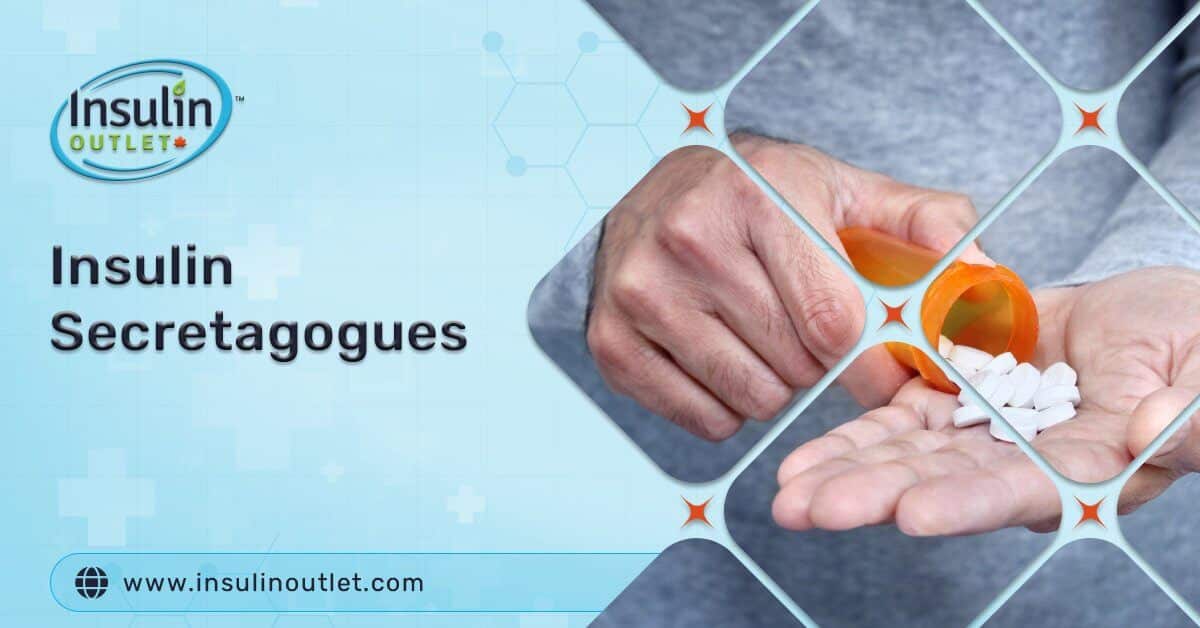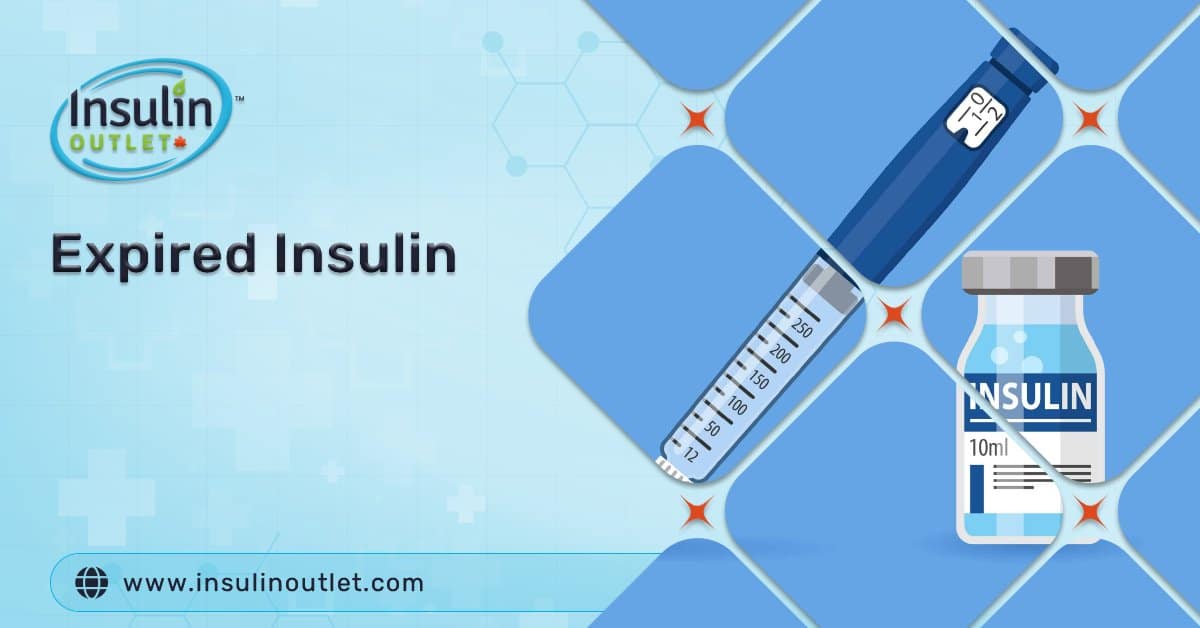
Many people with diabetes have been prescribed insulin secretagogues to help maintain their blood glucose levels. Although the most common diabetic medication is insulin more people with diabetes are interested in insulin secretagogues. Before we jump into insulin secretagogues, let’s take a quick look into type 2 diabetes.
Table Of Contents
ToggleWhat is Type 2 Diabetes?
Affecting millions, type 2 diabetes is a condition that is most prominent in the middle-aged and older population and the overweight or those with a family history of the illness.
Type 2 diabetes deals with glucose in the blood and insulin production. Typically, glucose comes from food; after one eats, glucose levels rise. However, those levels rise much higher than they should in people with diabetes.
At the heart of type 2 diabetes are primarily two interconnected issues. Insulin, a hormone that regulates the movement of sugar into your cells, is not produced enough in your pancreas, so your cells respond poorly to insulin and take in less sugar.
Individuals can develop type 1 and type 2 diabetes as a child or an adult. Once called adult-onset diabetes type 2 diabetes is now known as juvenile-onset diabetes. Childhood obesity has made type 2 diabetes more common among younger people, despite being more prevalent among older adults.
Type 2 diabetes cannot be cured, but weight loss, eating a healthy diet, and exercising can help you manage it. If diet and exercise do not control your blood sugar well, you may also require diabetes medications or insulin therapy. Types of insulin used by diabetics include KwikPens with replaceable cartridges.
To combat high glucose levels, the body makes insulin. The hormone is produced in the pancreas and moves the glucose from the blood into the cells for energy.
As a result, these people can develop type 2 diabetes, which can cause severe health problems. These health problems include kidney disease, heart attacks, nerve damage, and more. Those with type 2 diabetes should undergo lifestyle changes and take medications that can help to prevent these issues.
Diabetes has many potential complications and frequent comorbidities, such as:
- Heart and blood vessel disease. Atherosclerosis (narrowing of blood vessels) and heart disease (stroke) are associated with diabetes.
- Nerve damage (neuropathy). As a result of high blood sugar, nerves can become damaged or destroyed. This can result in tingling, numbness, burning, pain, or eventual loss of feeling. This can begin at the tips of the toes or fingers and progress upwards. Irregular heart rhythms can be caused by damage to the heart’s nerves. Nausea, vomiting, diarrhea, and constipation are nerve damage symptoms in the digestive system. Erectile dysfunction is another effect of nerve damage in men.
- Kidney disease. As a result of diabetes, kidney damage can become irreversible, and the patient may need dialysis or a kidney transplant.
- Eye damage. In addition to cataracts and glaucoma, diabetes may damage the blood vessels in the retina, possibly causing blindness.
- Conditions affecting the skin. A person with diabetes may suffer from bacterial and fungal skin infections.
- Slow healing. If cuts or blisters go untreated, they can cause serious infections, which may not heal properly. If the damage is severe, the toe, foot, or leg may need an amputation.
- Disability related to hearing.
- Sleep apnea. Type 2 diabetics are more likely to suffer from obstructive sleep apnea. Being overweight may be a significant factor in both cases. Sleep apnea treatment might improve blood sugar control, but it’s not clear whether it does.
- Dementia. Alzheimer’s disease and other dementia-causing disorders are more common among people with type 2 diabetes. Diabetes has been linked to more rapid declines in memory and thinking skills when poor blood sugar levels.

What is Insulin Secretagogues?
Effective and common medicine for type 2 diabetes is insulin secretagogues The medicine works by assisting the pancreas in making and releasing insulin, which helps keep blood glucose levels lower. With the reduction of blood glucose levels, the patient feels better.
As many people who have type 2 diabetes don’t make enough insulin, the increase in insulin production in the pancreas is essential for short-term and long-term health. With insulin secretagogues, insulin production increases, preventing or delaying many of the severe conditions caused by type 2 diabetes.
While there are many methods for taking diabetes medication (including insulin vials, pens and cartridges), insulin secretagogues are taken orally in pill form. The pills are often prescribed by doctors when lifestyle changes such as diet and exercise and other common diabetes medications aren’t working to produce the insulin needed.
When users take insulin secretagogues, insulin is released. The release of insulin lowers the level of blood glucose, providing relief for the person with diabetes.
Insulin secretagogues can be divided into two types; sulfonylureas and meglitinides. Both types of insulin secretagogues are pills and come with various names. Glimepiride, Glipizide, and Glyburide are all Sulfonylureas, while Repaglinide and Nateglinide are both Meglitinides.
Are There Benefits of Taking Insulin Secretagogues?
There are many medicines for type 2 diabetes and multiple ways to take them. Medications come in pens, pills, and syringes. Some are injected, and others are taken orally.
Both insulin secretagogues are pills that produce and release insulin to lower blood glucose levels. They are both highly effective and produce positive results for users.
Sulfonylureas tend to be tolerated by most users and typically have a low cost. They are usually taken daily, at least once but twice for some people with diabetes. Meglitinides are also taken daily, before meals, working in conjunction with the food eaten. However, the effects tend to be shorter-lived than the effects of Sulfonylureas’, and they are usually taken two to four times a day.
Are There Any Side Effects of Insulin Secretagogues?
Just as with any medication, there are potential side effects of insulin secretagogues. Still, most users can tolerate Sulfonylureas medications, as they tend to have lesser effects.
One of the main side effects of both types of insulin secretagogues is the potential for hypoglycemia. This occurs when the medication causes the blood glucose level to reduce too much.
The following signs and symptoms can occur when blood sugar levels are too low:
- A fast or irregular heartbeat
- Tiredness
- Pale skin
- Weakness
- Anxiety
- Perspiration
- Hunger
- Irritation
- Lips, tongue, and cheeks become numb or tingly
The following symptoms and signs of hypoglycemia can occur as hypoglycemia worsens:
- Inability to complete routine tasks due to confusion, abnormal behavior or both
- Symptoms that include blurred vision or other visual impairments
- Epilepsy
- Unconsciousness

If you experience the effects of low blood sugar when taking insulin secretagogues, some specific foods and drinks should help.
Another potential side effect of insulin secretagogues is weight gain. Users have been known to gain weight after taking the medication for an extended period.
What Diabetes Medicine Should I Take?
With many type 2 diabetes medications out there, it can be hard to determine what would be best for your condition. Your healthcare provider will recommend lifestyle changes and medications as part of your treatment. Understanding the side effects and being at risk for them can help with the decision.
Diabetes medications should always be taken in conjunction with lifestyle changes that include diet and exercise. A healthy and effective treatment plan will consider your unique challenges to create a cohesive plan that works best for you.
A healthcare provider can assist you in deciding if an insulin secretagogue is suitable for you and, if so, whether Sulfonylureas or Meglitinides would be best. Understanding your medical history, diet, exercise, and risk of side effects will help your physician make the overall determination.
Once you start treatment, you will want to be aware of your health and whether your medication is helping or not. To ensure your diabetes is under control, ask your doctor how often you should check your blood glucose levels and how often you should have check-ups. You will also want to understand what will happen if you stop taking, or forget to take, your medication.
After getting a good routine of lifestyle changes and an insulin secretagogue treatment going, you should begin to feel better and notice some significant changes in your condition,
Conclusion
Type 2 diabetes can cause serious health complications in a diabetic’s life. Diabetes should be taken seriously, and one of the ways it can be treated is through insulin secretagogues. Although all doctors do not prescribe the medication, it does play an influential role under certain circumstances. Please note, insulin secretagogue has to be defined by your healthcare provider and should never be taken without the guidance of a professional. Although this article may intrigue you in the medication, it discusses insulin secretagogue with your doctor before taking the drug. Each diabetic’s case is different from the next, and a healthcare professional would assess and make the proper recommendations that fit your scenario.
Share:












